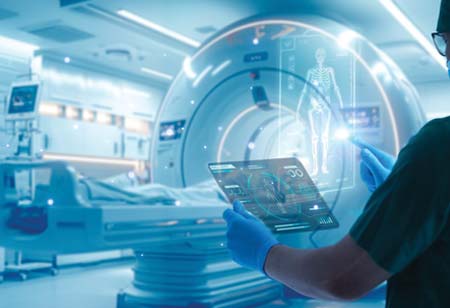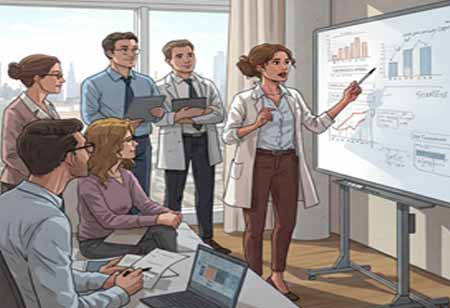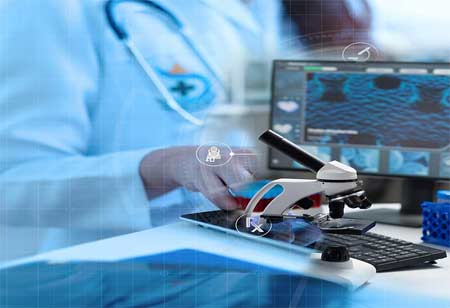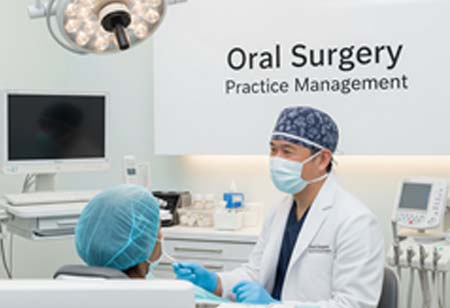Thank you for Subscribing to Healthcare Business Review Weekly Brief
Be first to read the latest tech news, Industry Leader's Insights, and CIO interviews of medium and large enterprises exclusively from Healthcare Business Review
Regenerative Medicine in APAC: Innovation Reshaping Healthcare Delivery
Regenerative medicine in APAC is advancing rapidly, with breakthroughs in stem cells, gene editing, and tissue engineering.

By
Healthcare Business Review | Monday, September 08, 2025
Stay ahead of the industry with exclusive feature stories on the top companies, expert insights and the latest news delivered straight to your inbox. Subscribe today.
Fremont, CA: Regenerative medicine is gaining momentum across the Asia-Pacific (APAC) region, offering new hope for treating chronic diseases, injuries, and organ failure. Fueled by breakthroughs in stem cell research, tissue engineering, and gene editing, the field is reshaping healthcare delivery. APAC’s growing investment in clinical innovation, combined with evolving regulations and advanced infrastructure, is accelerating the development and adoption of these therapies. This transformative shift positions the region as a key player in the future of personalised and restorative medicine.
Expanding Clinical Applications and Research Collaborations
Regenerative medicine is emerging as a transformative field across the APAC region, promising advances in treating injuries, degenerative diseases, and organ failure. Stem cell therapies, tissue engineering, and gene-editing technologies drive innovation, opening up new possibilities for restoring or replacing damaged biological structures. The growing interest in these techniques reflects clinical demand and the region’s increasing investment in biomedical research.
Many countries in the APAC region are making strides in developing and testing stem cell-based therapies, particularly for orthopaedic, cardiovascular, and neurological conditions. These treatments use adult stem cells, induced pluripotent stem cells, or umbilical cord-derived cells to repair damaged tissues and promote natural healing. Bone and cartilage regeneration, in particular, has shown measurable progress, offering alternatives to invasive surgeries and prosthetic implants.
Tissue engineering is gaining momentum, with research institutions collaborating to develop lab-grown skin, corneal tissue, and organoid models. These advances support applications in reconstructive medicine, burns, and disease modelling, helping clinicians test drug responses in patient-specific models. In several regions, pilot trials are underway to explore the feasibility of bioengineered tissues in transplant procedures.
Gene-editing technologies, especially CRISPR, are also being explored for their potential in correcting genetic disorders at the source. Combined with regenerative techniques, these tools offer a path toward personalized, precision medicine, tailored not just to diseases but to each patient’s genetic profile. APAC’s diversity and population size present a valuable environment for such data-rich, genome-informed therapies.
Regulatory Momentum and Infrastructure Growth
Progress in regenerative medicine in the APAC region is also tied to evolving regulatory frameworks that support innovation while ensuring patient safety. Governments are gradually adapting their policies to accelerate clinical translation without compromising ethical standards. Special regulatory pathways for regenerative products are being introduced, allowing fast-track approvals in cases with high unmet medical needs.
Investments in infrastructure complement efforts to streamline oversight and management. Biobanks, specialised manufacturing facilities, and cleanroom labs are being expanded to support large-scale production and testing of cell and gene therapies. These developments help bridge the gap between research and market-ready solutions, making regenerative medicine more accessible and scalable.
Education and workforce training are critical to sustaining momentum. Medical professionals are equipped with new skills to handle regenerative products, from harvesting and processing cells to delivering treatments and managing patient outcomes. Collaborative ecosystems involving hospitals, research institutions, and policymakers are fostering cross-border knowledge exchange and clinical partnerships.
Public awareness campaigns and patient registries further improve the ecosystem by tracking long-term outcomes and encouraging participation in clinical trials. These trends underscore the APAC region’s growing role as a dynamic hub for regenerative medicine, combining scientific potential with practical implementation across diverse healthcare systems.






